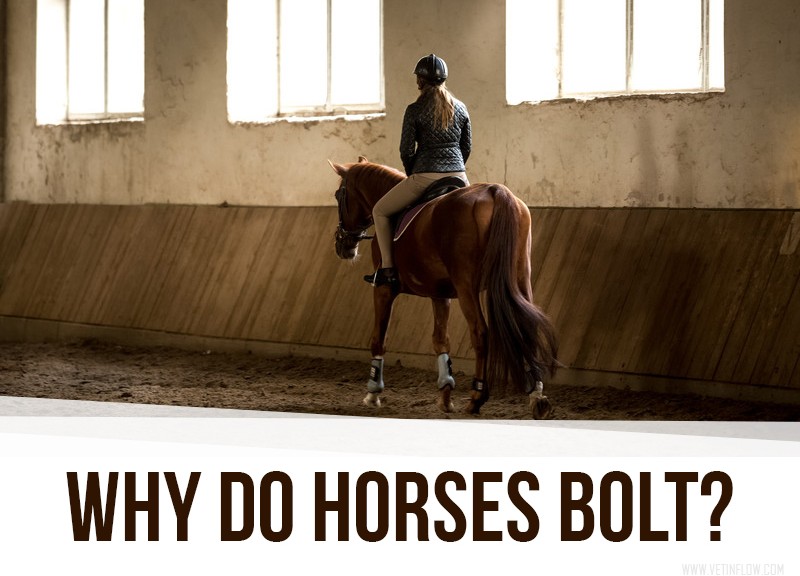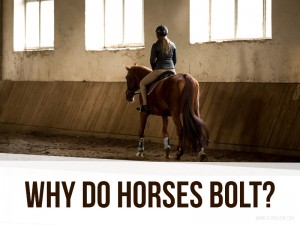Bolting is the word used to define a fear-based reaction of horses, where they run off, out of control, and their rider is unable to stop it.
The root of this behaviour is in the fact that horses are prey animals. In general, animals can be categorised as fight or flight animals, depending on how they respond to a threatening situation, such as dealing with predators for example. While some animals resort to fighting by biting, kicking or attacking using their natural weapons such as horns or antlers, others will flight and run from the situation.
Horses are flight animals and when they feel scared their natural response is to flee from the perceived threat. Domestic horses are usually trained to handle and to cope with less comfortable situations without resorting to this behaviour. However, sometimes their natural instincts will take over.
Some horses are more likely to bolt than others, as this also depends on their personality. Horses can be in such a state of panic that they will bolt and completely disregard the rider and all attempts to stop. Others might just take off and eventually the rider is able to calm them down.
In some cases, horses can take off not so much out of fear but due to lack of schooling, because their rider allows them to race with other horses, because they are not doing enough exercise and sometimes because they are high spirited and energetic. This tends to happen more often in open spaces where the horse can canter or gallop.
Bolting is a very dangerous behaviour as it can be extremely unpredictable. Horses have been known to run onto roads, straight into vehicles and fences, putting not only themselves but also the rider and everyone around them in danger. This can be very scary and have a huge impact on the riders’ confidence as their safety is compromised and they experience a frightening lack of control over the situation.
If your horse is showing this behaviour and if you are struggling to handle with it please take the time to approach all possible causes. Search for veterinary assistance and make sure your horse is physically well, as pain is often a strong motive for sudden changes in character.
Ensure the bit has the right size and that the tack fits. Please take the time to work on building your horse’s trust and to really get to know him or her. Some horses may need to be carefully schooled in order to better understand the rider’s commands, others may need to get rid of their excess energy before being ridden and many give off signs that they are feeling insecure and becoming stressed, which allows the rider to manage the situation before it turns into something more serious. It is very important for your horse to feel relaxed, secure and it is also very important for your horse to trust you.
Would you like to know more about horses? Check our Equine Courses:

